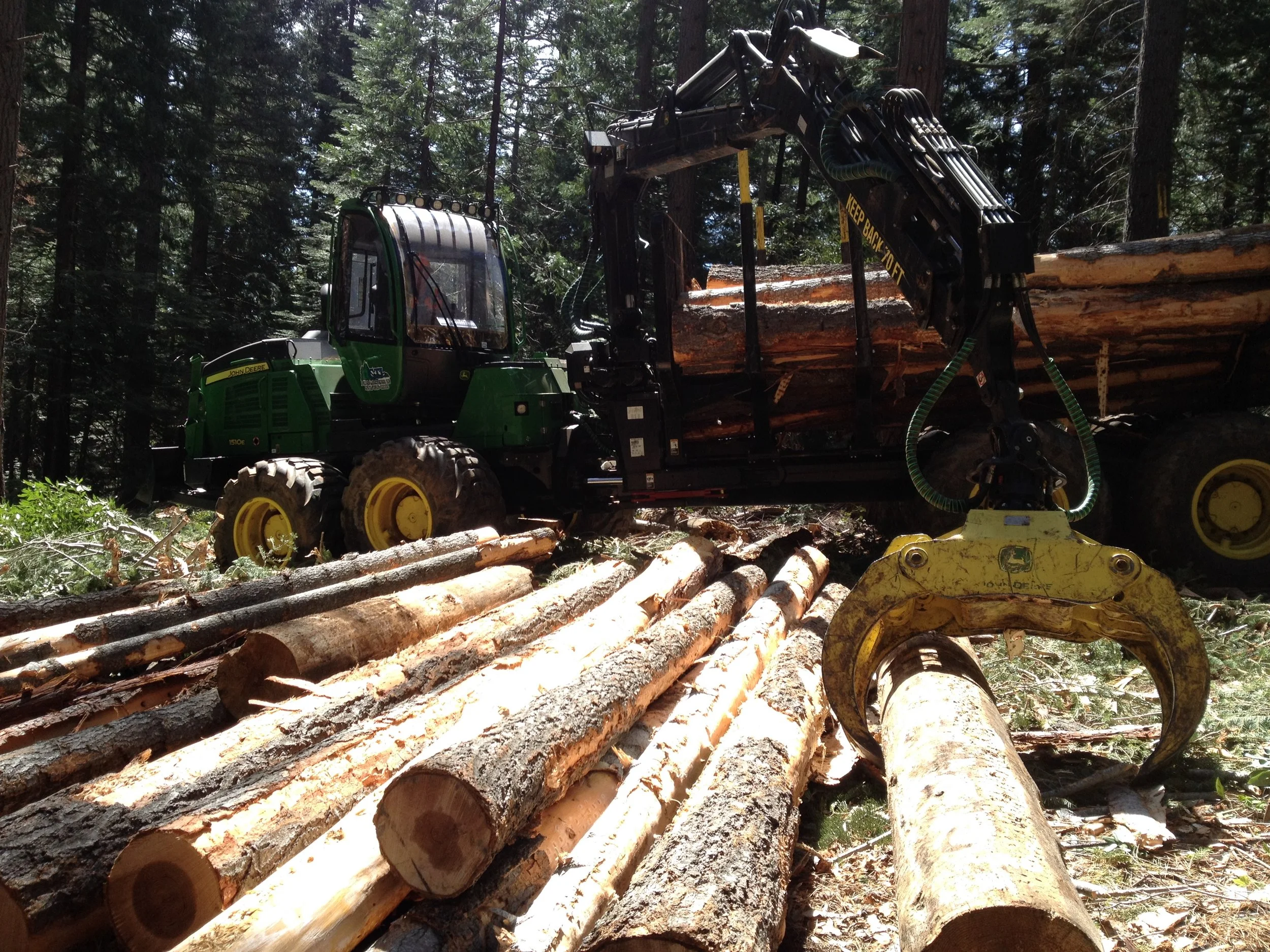Formed in 1980, CLFA is committed to enhancing the role of professional forestry in California.
Our Mission
Formed in 1980 by Registered Professional Foresters following the passage of the California Professional Foresters Law, CLFA represents all sectors of forestry including industrial, consulting, academic, state, and federal. It is the goal of the association to provide opportunities for continuing education and public outreach to its membership to further the forestry profession and responsible stewardship of California's forest lands.
What is a REGISTERED professional Forester?
A forester is a natural resources professional responsible for stewardship of forest resources. In California foresters are licensed by the state to perform professional services that require application of forestry principles and techniques to management of forested landscapes.
To become a Registered Professional Forester (RPF), one must complete multiple years of training and pass a comprehensive examination. Forestry is a multidisciplinary field that requires understanding of forest growth, development, and regeneration; soils, geology, and hydrology; wildlife and fisheries biology and other forest resources. RPFs are also trained in fire management and, if involved in timber harvesting operations, have expertise in both forest road design and application of the various methods used to harvest timber.
What does a forester Do?
Prepares forest and land management plans.
Monitor and asses forest health, and develop management strategies for protecting the forest from insects, disease, and wildfire.
Prepare and maintain inventories of forest resources.
Measure standing timber volume and appraising its market value.
Market forest products.
Prepare plans to rehabilitate forests damaged by wildfire or other destructive natural forces.
Manage wildlife habitat.
Analyze wildfire hazard.
Participate on teams with other natural resource professionals in the development and preparation of environmental assessments, environmental impact reports and environmental impact statements.
Provide expert testimony during litigation.
Manage community watersheds for water and timber production.
Provide information to forest landowners to increase their knowledge of forest ecology and management.
Prepare Timber Harvesting Plans (THP). In California, under current law, if trees are to be harvested for commercial purposes, a RPF must prepare a THP for review and approval by state agencies. Section 757 of the Public Resources Code provides for a landowner exemption, which allows a landowner who is a natural person to perform forestry activities on their own property without being licensed. Landowners should decide for themselves whether or not this exemption applies to them in a given situation. However, except for Conversion THPs, the Department of Forestry and Fire Protection will not accept a Timber Harvesting Plan or a Conversion Exemption for filing unless it has been prepared by a Registered Professional Forester.
Find more information on locating a Registered Professional Forester in your area and other resources available to landowners and professionals on our resources page.



